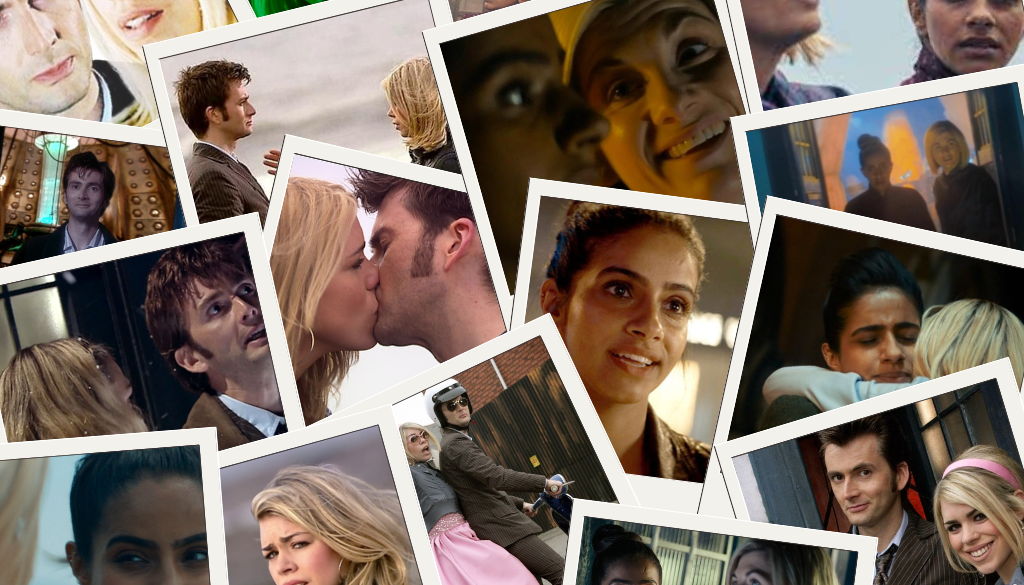Timey Wimey Entanglements: Critical Reception of Romance in the TARDIS from Tenrose to Thasmin
Throughout Doctor Who‘s six-decade history it has gone through innumerable changes. The Doctor/Companion dynamic has always been at the heart of the show. Yet, as the characters shift so do their dynamics. This post explores the the relationships between the Tenth Doctor and Rose (Tenrose) and the Thirteenth Doctor and Yaz (Thasmin). I pay distinct attention to why the Thasmin dynamic feels notable compared to other relationships due to race, gender, and sexuality. Furthermore, I touch on how the critical reception of the writing of Doctor Who in Jodie Whittaker’s era as a whole was affected by racism, sexism, and Covid-19. Finally, I investigate how the imbalance of power between the Doctor and their companion affects their relationships.
Table of Contents
- On Shipping
- A Bit About Tenrose
- When Doctor Who got “Woke” (A Necessary Tangent)
- Bringing it Back Around to Thasmin
- The Imbalance of Power
- About that Fan Service
- Conclusion
On Shipping

Shipping, as defined by the top result on Urban Dictionary, is “The act of one wanting/supporting two individuals involved in a romantic relationship”. This definition is short, sparse, and to the point, albeit somewhat lacking. For example, a ship might involve more than just two people—many people ship throuples. Their OTP (one true pairing) may in fact be an OT3. Furthermore, shipping does not necessarily entail romance. Someone might ship two or more people for their close friendship — I for example, am ride or die for my best friend and brother of over 20 years, but I do not want to date him, or my other best friend with whom my relationship could fill several essays.

This includes the fact that in high school she and I were part of a cohort of people who all considered ourselves regenerations of the same Time Lord called the Emperor/Empress. I was 5. She was 6. David Tennant and several people who might get me cancelled and/or excommunicated (ignore the fact that I’m not Catholic please) were also included.
Shipping is Robust
Who people ship is robust. It includes both real people and fictional characters. Sometimes this even intersects to shipping a real person with a fictional character. The possibilities of shipping are endless. Some ships are unique, and are not widely supported — so called “rare pairs”. Some ships are considered wild by others in the fanbase, and ridiculed — see this twitter post from late January 2023 asking people to list the wildest ships they had come across — the thousands of replies include ships that I never could have dreamed of and honestly consider slightly cursed. (Be very careful though — a significant portion of this thread is not safe for work.)
This is all to say that ships are often complex and do not necessarily fall into line with everyone’s tastes. What one person might consider wildly out of line and against their worldview, another would call their OTP. Many people are also multishippers, who will happily ship characters with multiple other characters. I am fairly static in terms of my Doctor Who ships. That said, if I am reading Marvel I am just as likely to be reading Frostiron as Ironstrange. (If that does not mean anything to you really do not worry about it. I just used an example of two ships with an overlapping character. This is not a post about Marvel.)
Doctor Who
So, where does that leave us when it comes to Doctor Who? This year the show celebrates its 60th anniversary. Enough people have been involved in the creation of the show and its extended universe that if you visit the Tardis Data Core — The Doctor Who Wiki — every day of the year is the anniversary of someone’s birth or death. Every day of the year has multiple releases attributed to it, whether it be the release of an episode, a comic, an audio drama, or some other Doctor Who related material.
Thus the amount of potential for shipping in Doctor Who is immense — the property contains thousands of characters, and we could not hope to discuss them all in one short talk or paper. So we will narrow our focus to Doctor Who since its reboot in 2005, and narrow it further to talk about two of the biggest ships in modern Doctor Who: Tenrose and Thasmin.
A Bit About Tenrose

Tenrose is an evolution. After all, the first Doctor that Rose Tyler knew was the Ninth, not the Tenth. (Note: for simplicity’s sake I am sticking with the traditional numbering schema. All the extra Doctors are great, but they make things incredibly complicated. For the purposes of discussion the Doctor created by the metacrisis with Donna Noble is referred to here as “Metacrisis Ten”.) The first kiss that Rose had with the Doctor is with Nine. She fell in love with traveling alongside Nine, and initially had a strong distrust of Ten.
A Romantic Hero
This quickly changed, as the chemistry between Billie Piper and David Tennant as Rose Tyler and the Tenth Doctor was palpable in nearly every scene. Furthermore, the Tenth Doctor has a certain charismatic appeal, and he is nothing if not a Romantic hero.
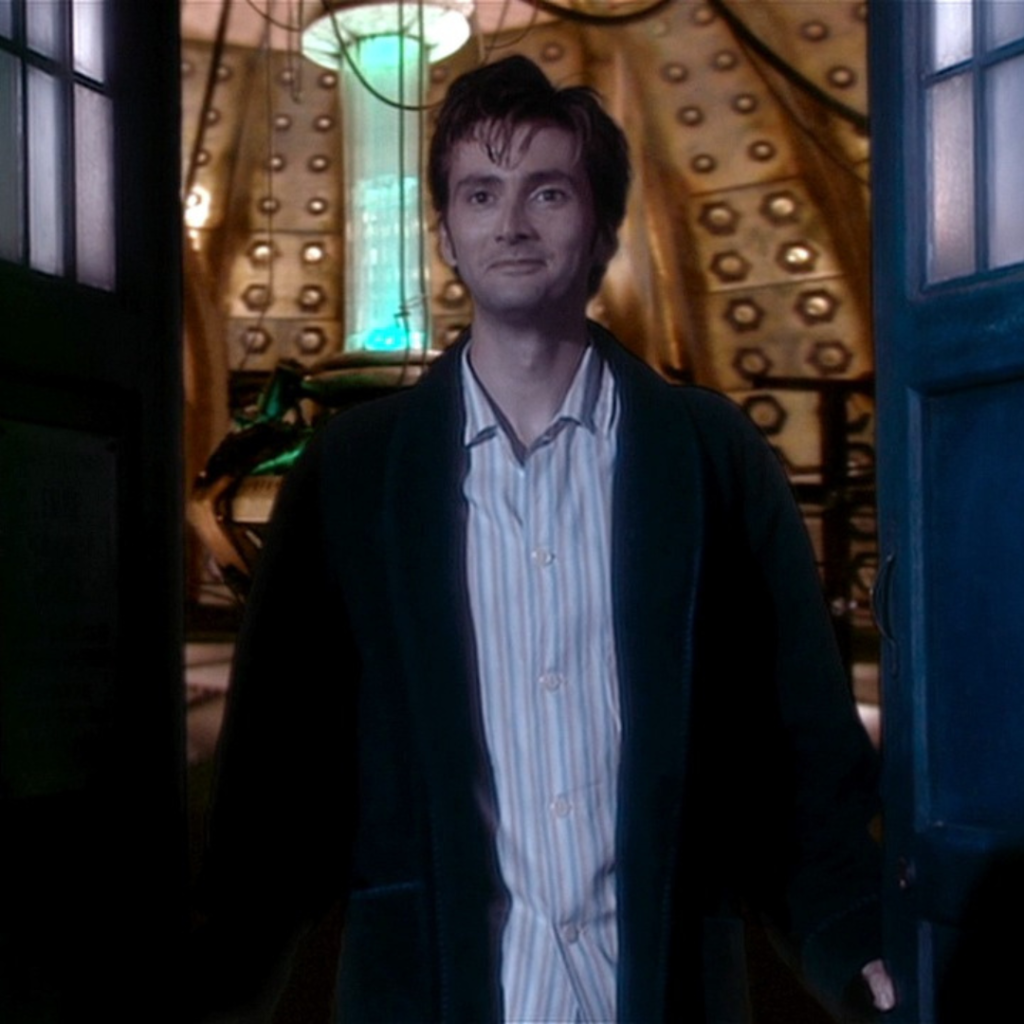
A Romantic hero is isolated, and is characterized by subverting expectations, rejecting social norms, by wanderlust. A romantic hero suffers, they rebel, they are prone to introspection and self-criticism.
Sound familiar?
All of these traits describe almost any Doctor, and shined brightly in Ten. He has fleeting romances with a number of other characters in the show, reciprocated and not. In addition to Rose we have Madame de Pompadour, Queen Elizabeth I, Joan Redfern, Martha’s one-sided pining, he even has a kiss with Donna, albeit under extenuating circumstances. Then there is the Doctor’s relationship with the Master, though that is an entirely different essay. Rose is but one in a number of romances. We have yet to see what the Fifteenth Doctor has in store.
Rose Sets the Standard

Rose is unique in a number of ways. She was the first companion of modern Doctor Who and in many ways formed a template for companions after her, no matter how different they might seem. For better or for worse, Rose set the tone and the standard for every companion that came after her.
Her tension with the Doctor was unfulfilled, with Metacrisis Ten stranded in the parallel universe alongside her as what some might consider a consolation prize. Ten — the actual Ten, not Metacrisis Ten — only kissed Rose when Cassandra had taken over her body. Nine was a different man, for all that they are at their core the same being. He could not even bring himself to say “I love you.” The chemistry, the pining, the way that the real Doctor never got his happy ending… its angst all the way down, of the most delicious kind. Will they/ won’t they romance is one of the oldest tropes in media for a reason.
Ever since Rose left the show, Doctor Who has in many ways attempted to replicate that formula in a variety of configurations. Yet Rose has remained the gold standard for companions in many people’s eyes.
When Doctor Who Got “Woke” (A Necessary Tangent)
Jodie Whittaker’s casting as the Thirteenth Doctor radically shifted things within the Doctor Who fandom. There have always been many sects of the fandom. In 2017 Doctor Who had been in the cultural consciousness for 54 years. A flagship show for the BBC, and embedded into the culture of the UK, everyone had an opinion about the Thirteenth Doctor being a woman.
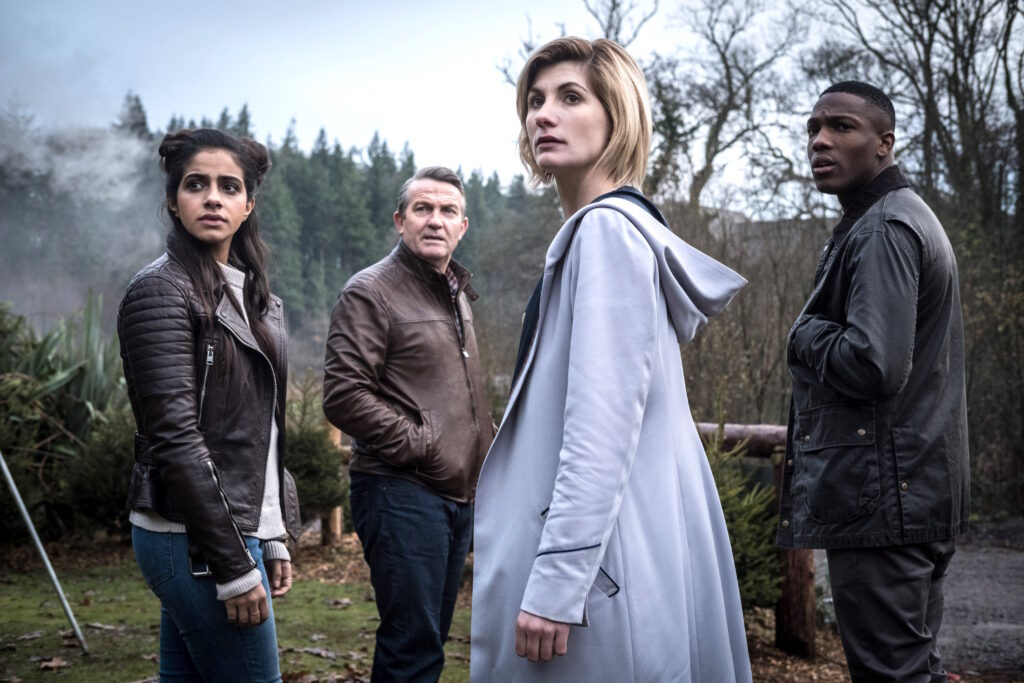
We live in a time where transgender rights are subject to increasing and in many cases lethal threats. Chris Chibnall casting Jodie Whittaker as the Thirteenth Doctor was a huge deal. There are people who cried out that Doctor Who was being ruined, there were (and are!) hashtags saying “not my Doctor.” Jodie Whittaker has been subject to more death and rape threats than I care to examine closely.
The outcry grew even louder when her companions were announced — Mandip Gill, Tosin Cole, and Bradley Walsh. For some people, Doctor Who had become unbearably “woke” with a woman as the Doctor and two companions of color in the TARDIS.
Many people have veiled their racism and queerphobia in how they dislike the writing of the show. Everyone who has been a fan of Doctor Who since 2018 has heard it — “Jodie’s acting is phenomenal, but I can’t stand the writing.” People discuss how Yaz has no arc, how Ryan has no personality, how there are too many people on the TARDIS.
About that writing (Doctor Who has always been political!)
Listen, I am not saying that the writing was perfect, okay? And I’m not saying that everyone who dislikes it is racist or queerphobic. Because the writing definitely has had flaws…. and they go all the way back to the Russell T. Davies era (the first one that people love so much) and further.
On my podcast we have been closely analyzing every episode of RTD’s first era. Currently we are in the process of releasing season three and about halfway through recording season four. (We live on opposite sides of the planet — making time to record is difficult so we do it far ahead of time.) Having watched so much of his seasons with a close eye, I can verify that so many of these episodes were a mess!
I’m sure that everyone involved was doing their best to put out the best episodes possible, but the writing scores (yes we do use a rubric) are consistently something that brings down the grade of an episode. (That and the science grade. But again, that’s another essay.)
Doctor Who is a complicated show, and it has never been perfect. If someone wants to rage about the political metaphors and messaging, they shouldn’t forget to also rage about Zygon Invasion/ Zygon Inversion episodes, The Day of the Doctor, or Sleep No More. They can’t say anything about A Town Called Mercy, Asylum of the Daleks, or The Hungry Earth / Cold Blood. They surely can’t say anything about New Earth, Gridlock, Smith and Jones, Planet of the Ood, or The Shakespeare Code. Then again that episode is one of the most transphobic there is in Doctor Who so it is not surprising that people who loathe having a woman Doctor might be in favor of it.
A Note About Covid
The Covid-19 pandemic has fundamentally shifted society across the globe. No matter how desperate people are to ‘return to normal’, irrevocable damage has been done and the way that people perceive the world and each other has been changed forever. I know that this sounds dramatic, but even as the world opens back up we are seeing that covid is not going away, and even if it were, the effects of the height of the pandemic linger.
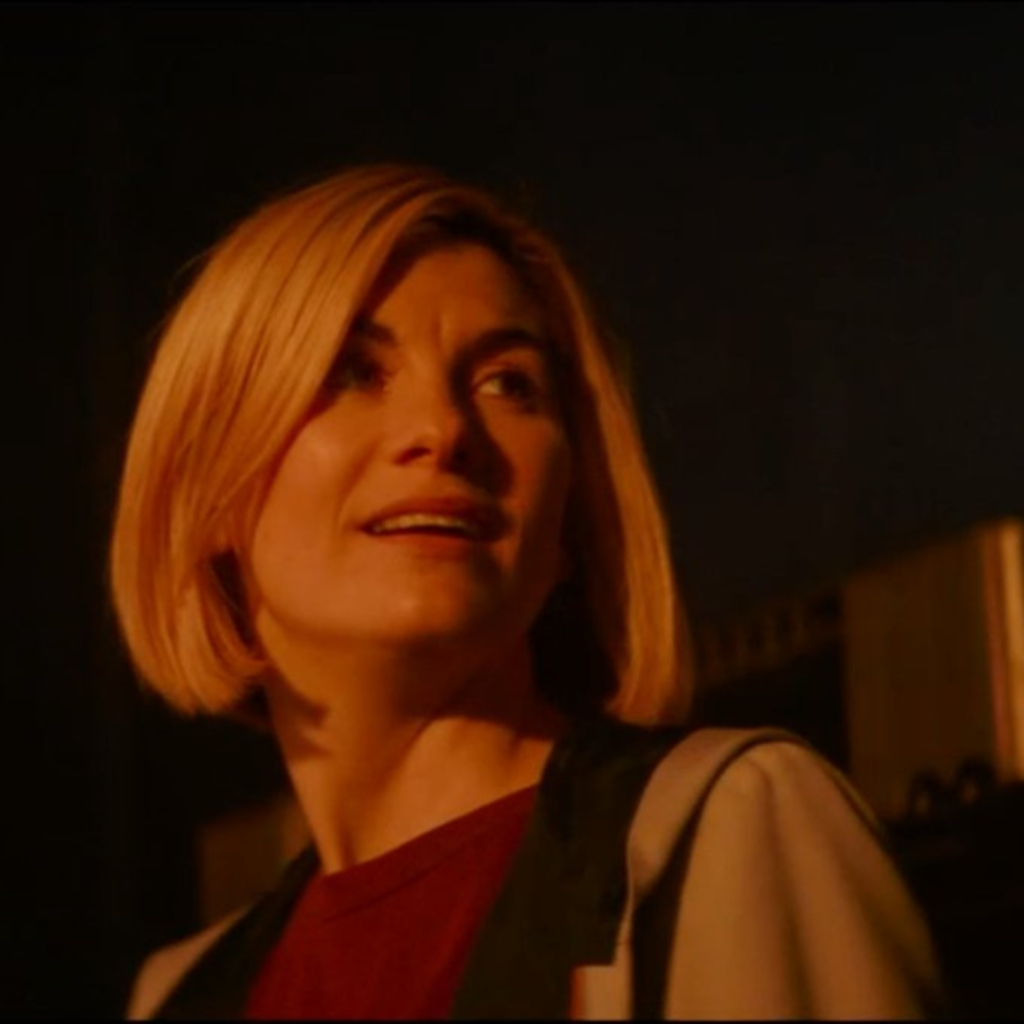
Covid almost destroyed Doctor Who, and undoubtedly did irreversible damage to series thirteen of Doctor Who and the Flux arc. Lockdown and limitations on production hit the Doctor Who team hard. Flux had to be scaled back to six episodes, and with limited travel and options for set design, Flux and the three 2022 specials had to rely heavily on limited sets, CGI, and a small cast. These limitations also led to an incredible time crunch for Chris Chibnall, who noted that he had to rewrite and provide a script for Eve of the Daleks with a 24 hour turnaround time.
That we received the extraordinary stories that we did, and that we had any Doctor Who at all in the past few years is commendable, and Chris Chibnall as showrunner and the rest of the production team truly do not get nearly enough credit, and are criticized with a harshness that when held against others feels disproportionate and undeserved considering the fact that they pulled Doctor Who through a time of such strong societal conflict all the while suffering such harsh criticism from within their own community.
Bringing it Back Around to Thasmin

Thasmin is a divisive ship. Many people claim to not have seen it coming, that it came completely out of left field. Yet if one examines Doctor Who with a keen eye, the seeds were set long before the writers officially and collectively committed to Thasmin. A recent issue of Doctor Who Magazine included a section called “Thasmin watching” where the Thirteenth Doctor’s run was examined episode by episode and the threads were connected.
Mandip Gill and Jodie Whittaker have both confirmed that Thasmin is canon — I know this in Jodie’s case because she told me directly at GalaxyCon Columbus in 2022. (I don’t have audio because I don’t record people talking without their consent and she said that she wasn’t allowed to talk to me about it if I was recording. But I do have pictures of us talking at the autograph booth!) I was at a Q&A with Mandip at Gallifrey One in 2022 where she let us know that Thasmin was not planned — it came naturally through Mandip and Jodie’s chemistry and sprinkles in the script. The fact that it came naturally, that it was a slow burn, is very attractive to many people.
Why does Thasmin feel different?
The Doctor has been shipped with many companions — not just Rose and Yaz. I cannot emphasize enough how much I have cut out of this essay but suffice to say that there is a lot of shipping in Doctor Who. Essays on almost every companion are waiting in the wings.
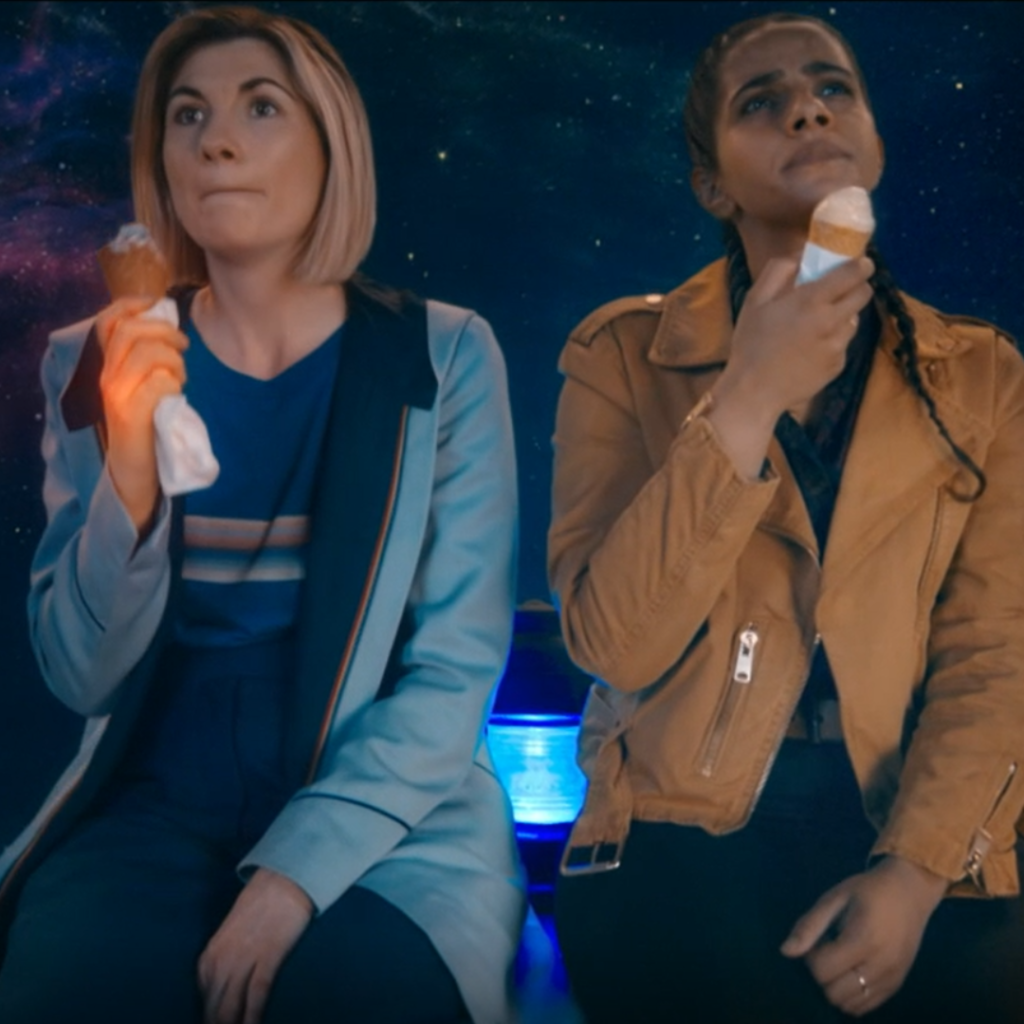
One of the reasons Thasmin feels different to many is because it is the first time that the Doctor is in a sapphic relationship. To clarify what I mean by sapphic — it’s a term with lots of potential definitions so it is important to be clear — I am speaking not only of relationships between women, but in my opinion, one I know is shared by others, trans men, nonbinary and genderfluid folks, and basically anyone who is not a cis man is welcome to the sapphic label if they want it. Obviously not everyone is going to feel comfortable with every label, and I would never dare to speak for everyone under the queer umbrella — especially since many people cannot even agree about the word queer!
What I am getting at, is that all of the previous incarnations of the Doctor that we saw on the show before Jodie Whittaker became the Doctor in 2017 were coded as cis men and played by cis men (to my knowledge, one of the actors could be nonbinary but if they are, I haven’t heard anything about it). The Doctor was absolutely queer coded at times — Hello Ten/ Simm!Master — but was never in a sapphic relationship. So having the Doctor being in a sapphic relationship? Y’all can bet it’s a big deal.
Okay, but why Thasmin?
Why not Thasmin? People have shipped the Doctor with everyone under the sun. Yet the outcry against Thasmin is unique in a number of ways. Jodie Whittaker’s era caused many racist and queerphobic people to flee Doctor Who, or conversely stay around to hate-watch. It also drew in new audiences of people who were not interested in Doctor Who before.
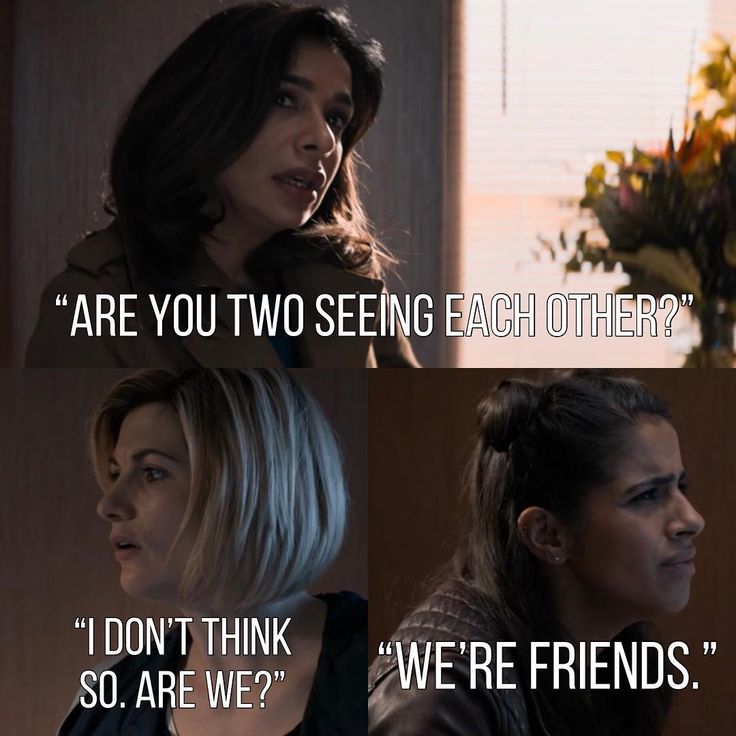
New viewers and people who have found a renewed love of Doctor Who because of Thirteen’s era have been cruelly attacked and threatened online by gatekeepers. Anyone who dares comment on race or gender in the show often comes under heavy criticism — I myself have been subject to this. Many of us saw Thasmin from the beginning in the small, subtle ways that it initially manifested. If someone was not attuned to those signs, Thasmin might have come up too suddenly for them.
Thasmin is innately appealing to many sapphics who have not felt themselves represented onscreen before. Yaz is a canonically queer character and is the first companion of South Asian descent on the show. Mandip Gill bore an incredibly heavy burden of representation in portraying her character and given the way that her target audience has respondeed she did so beautifully.
Perception of Companions
Both Rose and Yaz are ostensibly 19 at the start of their arcs, but that is where many of the similarities end. Rose was drifting, had recently lost her job, and threw herself wholeheartedly into being with the Doctor. The Doctor consumed and shaped Rose’s life, her sense of worth, and her identity. Yaz was enamored with traveling with the Doctor, with exploring time and space, but she also made time for her family and for her life on Earth. Eventually going back and forth was too much of a strain and Yaz chose the Doctor.
For Yaz that was an informed choice, not running away from her life on a whim that later firmed up. Yaz was always more independent and reserved. If I were to go over and start this research again from the ground up I would also include TwelveClara in my analysis, because Clara in many ways provided a template for Yaz.
Nevertheless I argue that Yaz broke the template in a way that was refreshing, as with Clara we still hardly got a sense for who she was outside of the Doctor. After series seven we never hear anything about Clara’s family again. Similarly, Amy might as well be an orphan again after the wedding scene at the end of series five.
Yaz has community, and even when she leaves them for the Doctor, we still see that in Flux it would not be unusual for her to be home playing video games with Sonya. When the time comes to part ways with the Doctor, Yaz is not happy about it, but she has a fully realized sense of self and a community to which she can return.
Alright, but what about that ending?
How Thasmin ended hit a lot of people very differently. Many people said that it was not enough, that there was more that should have been said and done between Thirteen and Yaz. That said, the way they ended was full of mutual respect and understanding. They wanted more time together, yet knew they could not have it. They accepted the change with grief, yes, and also with grace and dignity. Thirteen and Yaz connected on a deep, emotional, spiritual level. But the Doctor knew from past experience that expecting more out of their relationship would never work.
“It was a long time ago. I was a different man back then. But the point is, if it was going to be anyone, it’d be you. But I can’t.”
The Thirteenth Doctor, Legend of the Sea Devils
The Doctor points to the fact that the person they were before had those relationships, but as she is now, she knows it’s not possible. Still, she wishes to keep what she has with Yaz for as long as possible….
“I wish this would go on forever.”
The Thirteenth Doctor, Legend of the Sea Devils
Which is why she does not dare to jeopardize it.
Tenrose got their kiss though!
As I mentioned before, Ten did not have a happy ending with Rose. He gave that away to another version of himself, one that could be with her. Ten himself, on the other hand, was left alone. The Doctor is used to being alone. They find people to love but cannot hold on to that love.
“You can spend the rest of your life with me, but I can’t spend the rest of mine with you. I have to live on. Alone.“
The Tenth Doctor, School Reunion
One might argue that it was not fair to Yaz, that she did not get to have her Doctor forever in the way that Rose does. That said, it’s not ever made obvious that the Doctor removed the AI version of herself from Yaz. It’s different from what Rose had, certainly, but Yaz will always carry a part of the Doctor with her. Whether or not you think that is a good or a bad thing depends almost entirely on your opinion regarding AIs. (But that’s yet another essay!)
The Imbalance of Power

Remember how I said both Yaz and Rose were only 19 when they started out with the Doctor? Yeah, that is a bit squicky for a lot of people. As Rose says in Aliens of London:
“You’re nine hundred years old. […] My mum was right. That is one hell of an age gap.”
Rose Tyler, Aliens of London
People have every right to protest that there is an ethical issue at play when considering the extreme age difference between the Doctor, who has been alive for centuries, millenia, and their companions, who are much younger. The Doctor has a depth and breadth of experience that their human companions can never hope to match. This is an immutable fact, and when the companions in question are teenagers this is even more so the case.
Taking the stance that the Doctor should not be shipped with a companion is completely reasonable and in principle I do not disagree. As a point in fact, I find it wholly in line with my own thinking, and it is why, for the most part, I tend to only read Doctor/companion fanfiction where it is an alternate universe where the Doctor is human.
But you ship Thasmin!
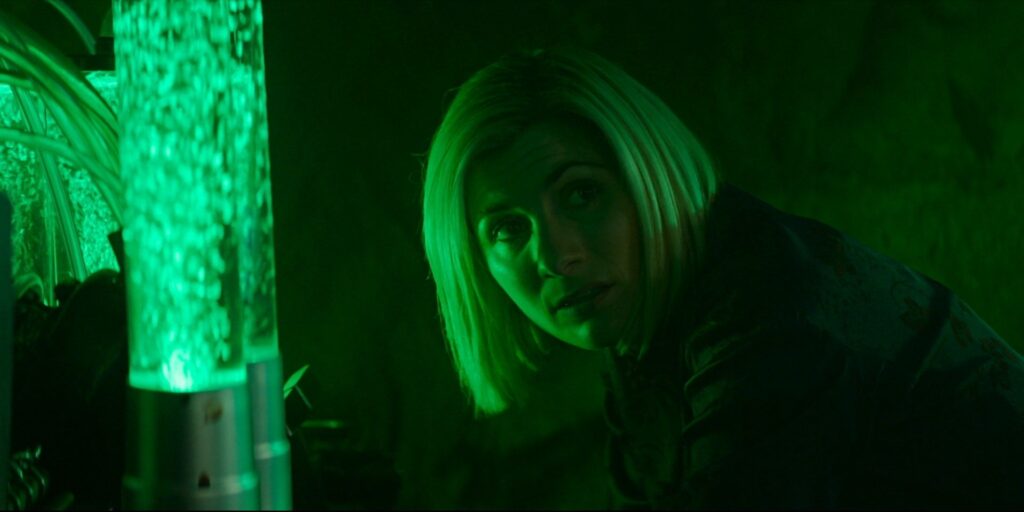
Yes, I do ship Thasmin! One of the reasons that I enjoyed Thasmin as canon is because the Doctor recognized the power imbalance and the vast difference of lived experience between herself and Yaz. Thirteen acknowledges that she has trauma and the burden of the thousands of years she has traveled the cosmos cannot compare to Yaz, who is at this point in the narrative in her mid-to-late twenties.
Yaz also has the maturity to recognize that she cannot comprehend all that the Doctor has gone through. I support this ship because ultimately both Yaz and Thirteen navigate their relationship with open communication regarding the fact that what they have together is special and cannot be pursued further because of the power imbalance and millenia of trauma that separates them. This is not an opinion shared by everyone who ships Thasmin, but it is the one I hold personally and I know others who are like minded.
Okay… what about Tenrose then?
I will not lie, Tenrose is toxic. I believe wholeheartedly that the relationship between Rose Tyler and the Doctor is problematic at best. Rose Tyler is the darling of the modern era of Doctor Who. As I have mentioned before she set the standard. However it bears repeating that she was defined by the Doctor. Rose can be an incredibly strong character, but she refuses to walk away at any cost until Metacrisis Ten is given to her as a consolation prize. She never leaves the Doctor on her own terms.
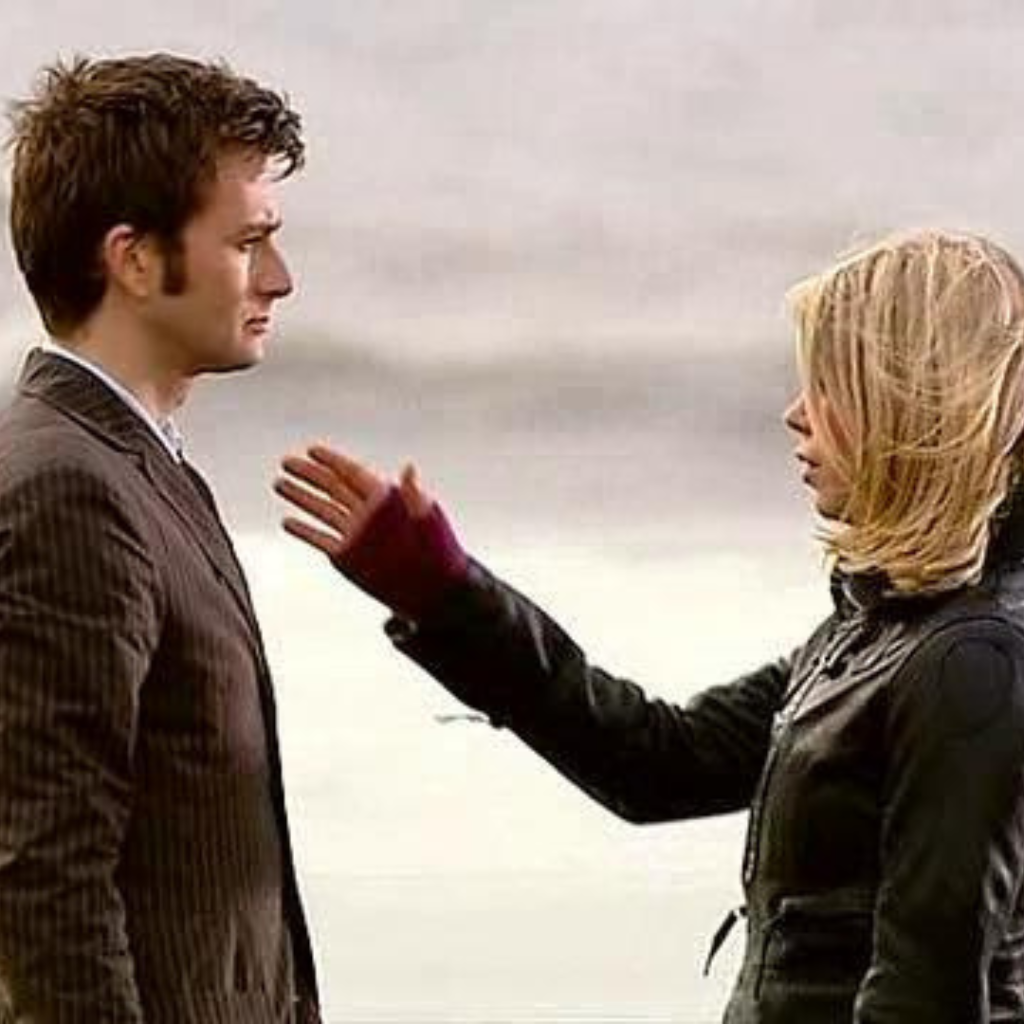
Our initial goodbye to Rose her admitting her love to the Doctor on the beach, to which his response is
“Quite right, too. And I suppose, if it’s one last chance to say it, Rose Tyler—”
The Tenth Doctor, Doomsday
Many focus on the fact that he never finished his sentence and only says her name at the end. I find the first part of his sentence interesting. “Quite right too.” When rephrased this sentence can sound very different. “You were correct to love me.” “Loving me was the right thing to do.” This scene embodies their power imbalance. Rose is sobbing, makeup completely awry and barely able to speak. Meanwhile, the Doctor is somber. He tells her that she did the right thing by loving him, as if she were passing a test.
Are you saying that Ten doesn’t love Rose??
Obviously Ten loves Rose! We see it in his every interaction with her. Yet this love is inequitable. The Doctor is “burning up a sun just to say goodbye”. Yet Rose is the one who investigates the collapsing universes, who fights to get back to him, while he does his best to forget about her by traveling with other women, by moving on. Because he cannot afford to get attached in the same way.
So which is better?
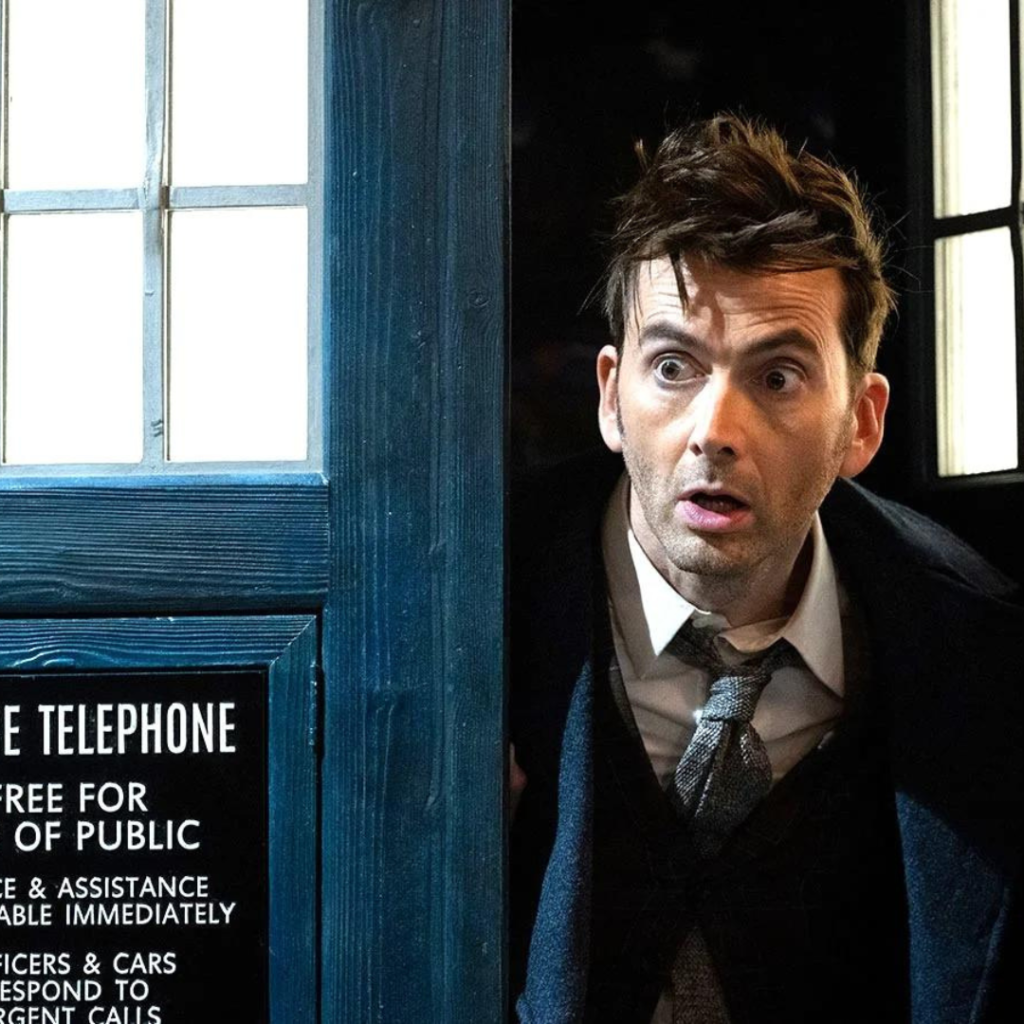
I do not think that making this into a competition is useful. Yaz and Rose are both bad bitches and I do not condone pitting bad bitches against one another. However, there is no denying that Thasmin is healthier than Tenrose. For all that Thirteen hides things from Yaz and struggles to communicate initially, in the long run she gets her feelings across. Much of this growth on Thirteen’s part can undoubtedly be directly attributed to the way her relationship with Rose played out when she was Ten.
At the point that I am writing this we have not seen David Tennant on screen as Fourteen in anything other than the regeneration scene and trailers. However, if we are to assume that there is no backsliding in RTD’s second era, then we can clearly see the through line of the Doctor’s maturity. They have realized that they need to be careful with how they interact with companions romantically. From Ten and Rose and Martha, through Eleven and Amy and River, even to Twelve and Clara and River the Doctor has learned this lesson. (I’m not diving into TwelveClara right now. I don’t have another 3,000 words to spare on this overly-long essay. But I will be diving into that pit at some point.) Ultimately we get to Thirteen and see the care with which she treats her companions, and particularly Yaz.
About that Fan Service
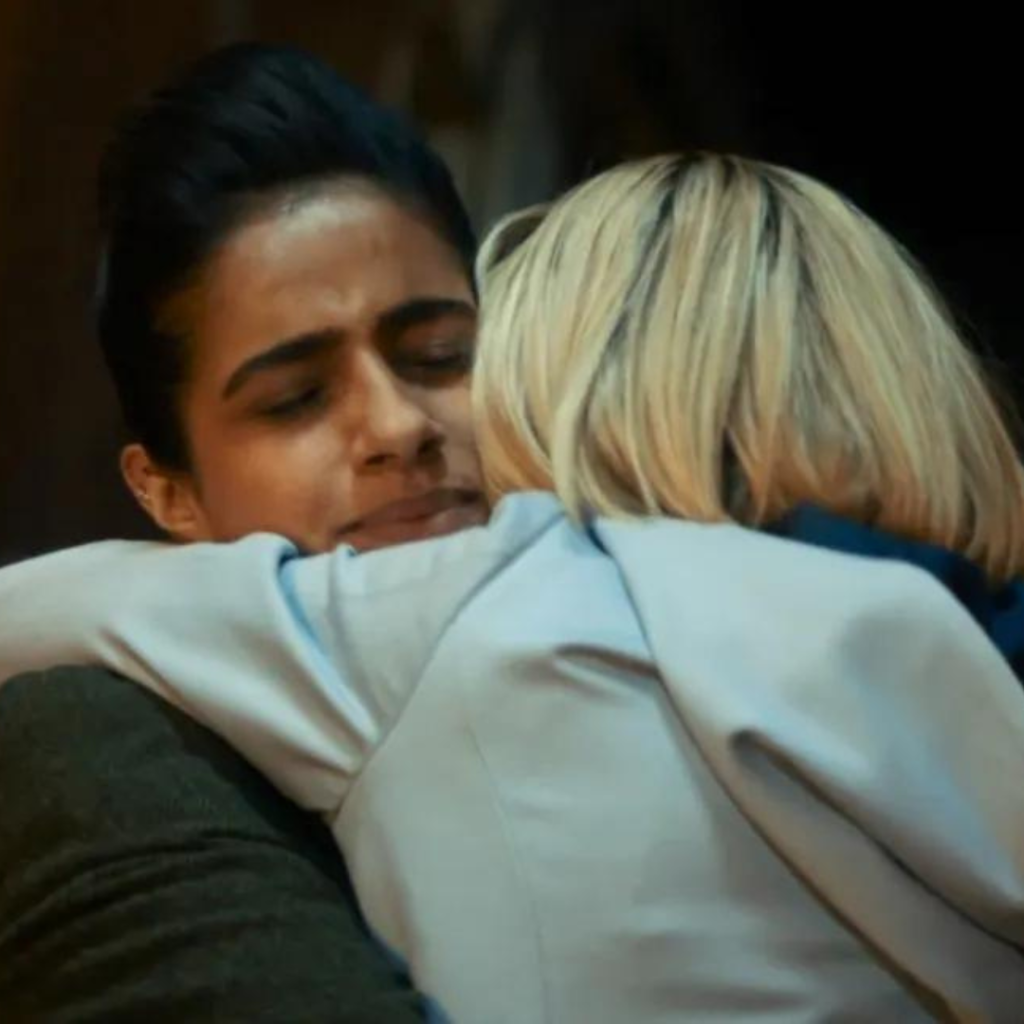
As mentioned previously, for many people Thasmin was something they saw from the beginning. Breadcrumbs were left, and viewers picked up on them. Ultimately, what led to Thasmin becoming canon was a combination of innate chemistry and stray dialogue and direction that, with fan support, became intentional in the last season of Jodie Whittaker’s run. The canonization of Thasmin was a reward for fans who picked up on what was being put down and who saw it all along. Sure it was fan service, but as a show of six decades that is built upon the work of people who have been life-long fans and grew up writing fanfiction only to now write, direct, and act in the show… I’m not sorry to say, it’s fan service all the way down.
But Thasmin was SO shoehorned in that last season the writing was—
I am going to stop you there and direct you to my above section about how covid destroyed key aspects of our society and constricted Chris Chibnall’s vision for series thirteen and Jodie Whittaker’s arc as the Doctor as a whole. See also the fact that just because one person did not notice the seeds had been planted did not mean they were not growing. Objectively we all watch the same show, but subjectively we see it differently.
A real-life (as in on the telly) Tenrose example
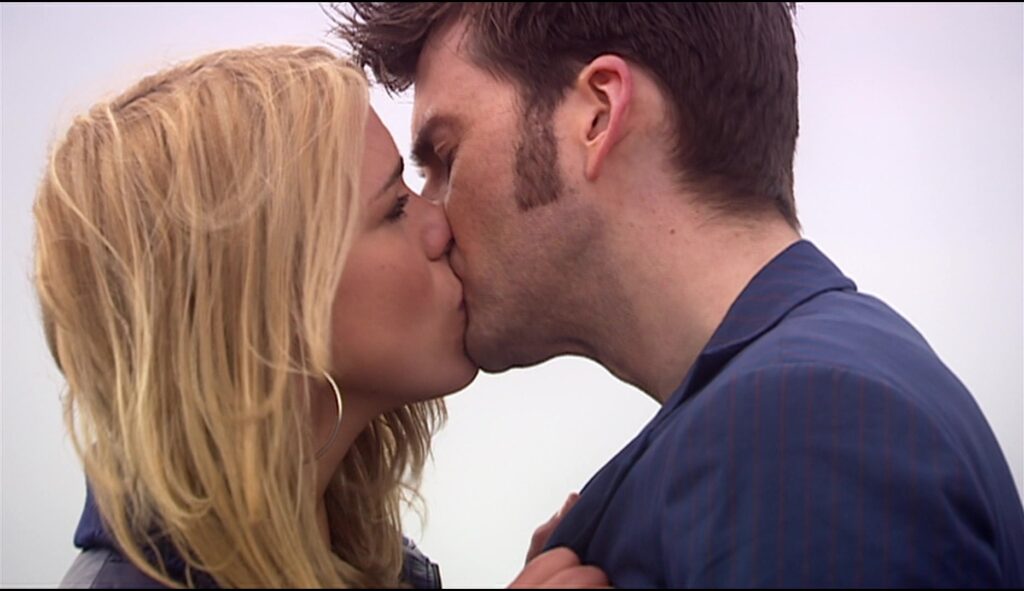
I am going to say this with my chest here — Rose was shoehorned into season four as fan service to Tenrose shippers and took away from Donna’s rightful arc as a companion. For a season that is supposedly about Donna as a main companion, the season was from the first episode teasing the return of Rose. Donna herself and the concept of the Doctor-Donna was a vehicle for the creation of Metacrisis Ten who was the consolation prize for Rose since, as a human, she could not grow old with the Time Lord version of the Doctor.
The thing is though, that even though the writing was at times clunky and I wish there was more time for Donna and I rolled my eyes at it because I am not a hardcore Tenrose shipper, I was not mad about how series four ended. (Aside from Donna losing her memories which if the 60th doesn’t fix that I will be livid.) While the fan service did not hit me in the feels where it did others I could still appreciate it. My hope is that, in the same way, others can learn to appreciate Thasmin too.
Conclusion
Not everyone ships every ship. Not everyone is a multishipper. There are some who consider their OTP the only acceptable endgame for a set of characters and that’s fine! As long as they respect the opinions of others and treat those who believe differently from them with respect. The problems arise when there is no respect between those who think differently and when double standards are applied. For example, when people are upset by age differences in ships, that upset has to be applied equally across all Doctor/ companion ships, or else one is engaging in hypocrisy.
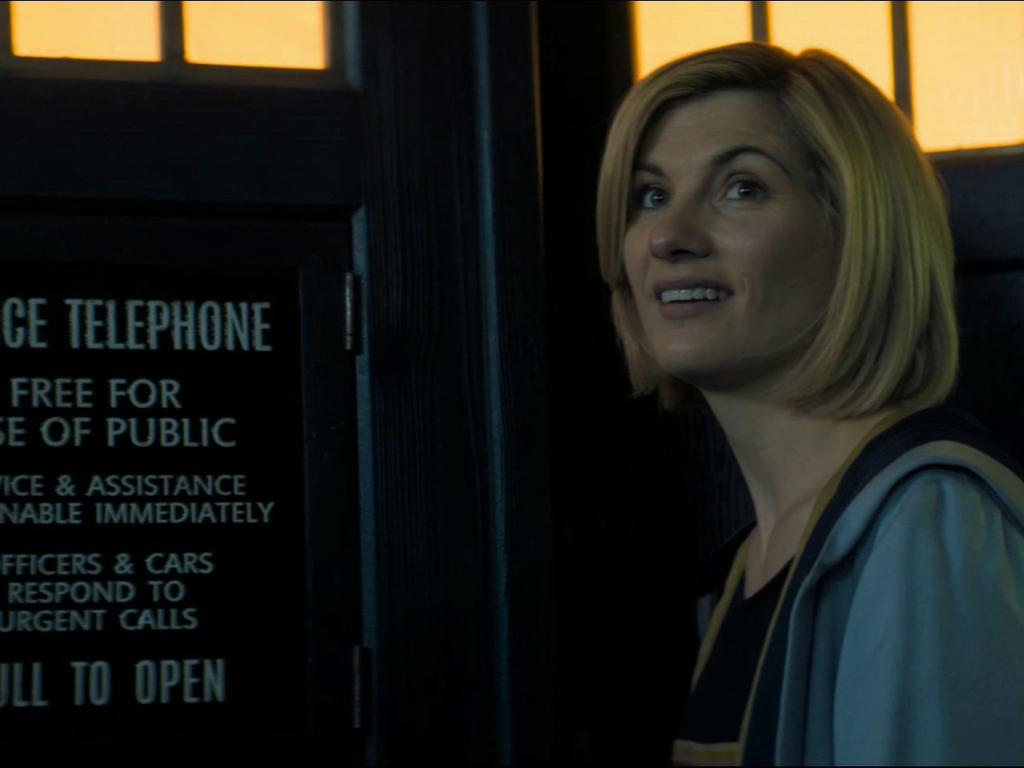
As mentioned previously, we are all watching the same show, how we watch it is subjective. What we see is the same but how we interpret it can be very different. Next time you talk with someone about Doctor Who, I encourage you to do so with mutual respect and in good faith with the expectation that others are doing the same. Diversity of perspective is a good thing as long as we do not cause harm while engaging with others.
I had a whole section about fanfiction analysis that I was going to include here. However, it had a bunch of numbers and statistics and pushed this essay past 6,000 words and that seemed egregious! So that will be a separate post coming in a few weeks. I hope you enjoyed this essay, and thanks for making it this far and actually reading the conclusion! A special thank you to those who attended the TARDIS Talk at Gallifrey One 33 1/3: Long Live the Revolution that this is loosely based on and came back for even more of me getting on my Timey Wimey Entanglements Soapbox.
